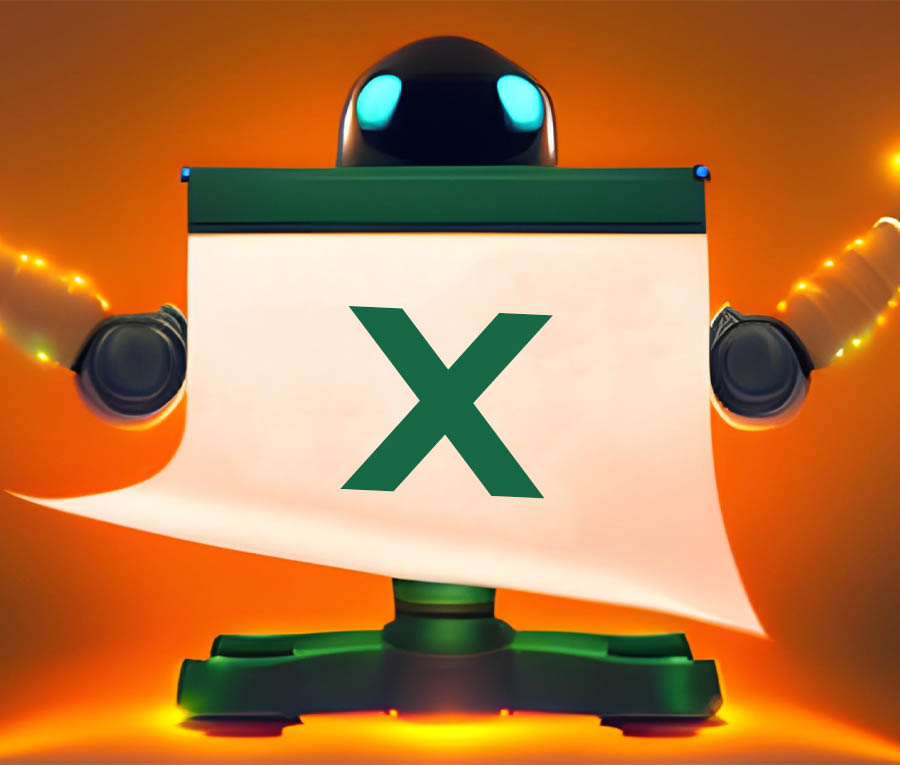Why AI Shouldn’t Write Your Resume

Don’t be fooled into thinking AI is the best thing for your resume
Many people are jumping on the artificial intelligence bandwagon in order to compile resumes, cover letters, and professional biographies. They think it’s a shortcut to having an all-singing, all-dancing resume.
While AI does have some convenient attributes and may be all the rage at the moment – increasingly so in many areas of life, it isn’t intuitive enough to craft compelling career marketing documents that will get past the applicant tracking systems and win you an interview.
Keep reading to learn the reasons why you shouldn’t use AI to write your resume.
What is ChatGPT?
Just for the record, this isn’t a bash-artificial intelligence (AI) post. There will be prompts at the end which you can use to get the most out of ChatGPT if you do decide to go down that road.
Chat Generative Pre-Trained Transformer (ChatGPT) is artificial intelligence that can provide 100s of words and content based on a prompt that you provide. There’s more content if you pay for the premium version. There are a ton of artificial intelligence platforms out there; however, ChatGPT is the one that gets a lot of press because of its conversational nature.
ChatGPT was co-founded by Elon Musk and launched in Nov 2022. It’s being touted as the technology wave of the future for a lot of professionals, including those seeking out new employment. However, the platform isn’t intuitive enough to fuse your experience, education, skills, and achievements with relevant keywords from a job description – at least, not without using the right resume prompts.
Remember ATS?
Improperly using ChatGPT will very likely leave your resume trapped within the applicant tracking system. That is because each time you send out your resume for a job application, it should be tailored to that specific role. At the end of the day, the ATS can be a true thorn in your side, because if it doesn’t find the keywords that the recruiter is looking for in your resume, your resume is likely to be overlooked. This means that the human beings at the company who make hiring decisions may not even know that you exist.
When you make your career history mirror the job description, you’re showing employers that you have what it takes to make the cut, and how you’ll be an asset to their team and fuel their success.
While customizing to each job to get past the ATS is a big reason to avoid using ChatGPT, there are other reasons, including:
It’s lack of creativity and personality
AI’s inability to recognize and leverage industry-specific jargon
The risk of plagiarism
Let’s look at these valid points in more detail.
1. Lack of creativity
The job market is a vast ocean of sameness, so it’s vital that you stand out from the crowd. You can do this by showcasing your personal brand, as this is what makes you unique. Yes, your resume is supposed to represent your career history, but employers also need to get a sense of you as a person. An artificial intelligence platform has no way of grasping how to align your personal brand with what employers are seeking.
Employers want candidates to possess the right technical skills, also known as hard skills, but they also value those soft skills that are transferable. Soft skills reflect assets, such as your values and work ethic, to potential employers. When your resume is missing a sense of personality, the employer will have no way of knowing whether you would fit with the culture of their company.
On top of missing out on reflecting on your personal brand, an AI-generated resume can leave a gaping hole in the text as it relates to what the company wants. Every company has unique requirements and qualifications; the one-size-fits-all approach won’t cut it. When you take the time to align your resume with what the company wants, you demonstrate your commitment to that company, as well as your ability to meet its needs.
2. Inability to understand industry-specific jargon
You want to avoid using too much jargon in your resume, because of the potential for being unclear. On the other hand, every job in every industry has its own way of saying things. Using the correct language within your resume helps to demonstrate your knowledge and expertise in a particular area. Industry-specific terms may not make it onto your resume if you use an artificial intelligence platform because it won’t know about them.
Think about how many different meanings there are to the acronym AP. In accounting, it means accounts payable, while in the tech field, it means access point, and in the media sphere it stands for Associated Press. Depending on how it’s used in your resume, you could come across as someone who doesn’t have a full understanding of the job.
3. Plagiarism can damage your professional reputation
While you do control what you type into the writing prompt on the ChatGPT platform, you can’t control what it generates. Since ChatGPT uses pre-existing data, there’s a strong possibility that the content will be the same as something else found online.
A simple internet search about plagiarism in resumes will show you that recruiters and hiring managers do check applications for plagiarism, and those that are found to have used content from somewhere else will be dismissed out of hand.
So what should you do instead?
Writing your resume can be a stress-inducing activity. Not only do you have to consider the content, but you’ve also got to be in the know about how it’s formatted and the visual appeal. Your resume is the first impression that you make to a prospective employer, so it has to be written in a way that gets past the ATS and then impresses a human being.
Before jumping into writing your resume, you should know what some of the most common resume-writing mistakes are, so that you can avoid them like the plague!
Here are 4 common resume mistakes:
1. Too long
Your resume isn’t a dumping ground for everything you’ve ever done since the 1990s – including that Saturday Shop Assistant role you endured. It’s a targeted marketing document that’s meant to speak to a specific job. As a general rule, keep your resume to one page, if you have less than five years of experience, otherwise keep it within two pages.
The only time you should use three pages is if you’ve conducted special research, have published a bunch of articles, frequently participate in public speaking events, or are writing a CV or federal resume.
Expert Tip
You can give yourself an advantage by using the most successful resume format, which is the reverse-chronological format.
2. Typos and bad grammar
In this day and age of automated spelling and grammar checks, it’s almost unforgivable to present employers with a resume that’s littered with typos. But believe it or not, the amount of resumes floating around out there with simple errors is huge. And the number of hiring managers who will instantly reject a resume, even if it only has one or two typos or bad grammar, is huge too. The answer is to proofread your resume a few times before sending it.
Expert Tip
Ask a trusted friend or colleague to have a look as well, as a fresh pair of eyes can spot something that you might have skipped over.
3. Lack of achievements
There isn’t a hiring manager alive who cares about every experience you’ve ever had. They want current, actionable content that shows how you can make a difference for a company. So stick to detailing the last 10 years of experience, and talk about things you did that show tangible results.
It’s a good idea to show off your achievements under a separate heading, so while you might write your responsibilities in a paragraph format, place your achievements under that in bullet form.
EXPERT TIP
Expert Tip
This is the time to break out the STAR method to help with writing your key achievements.
4. Overgeneralizing
It can’t be overstated how important it is to tailor your resume to a particular job. Hiring managers and recruiters want to know that you can help them solve their problems. If your resume isn’t customized to the job they have open, they won’t know what you can bring to the table.
Expert Tip
Avoid a generic resume at all costs – it won’t do you any favors, and really is a waste of time.
How do I use AI for resume building?
After all of that information, if you do decide to use AI, there are both good and bad points – as with most things. If used properly, AI can help you create some parts of your resume that you might otherwise have struggled with. Remember, the most important thing about your resume is that it highlights relevant skills, experiences, and achievements – with relevant being the keyword here.
AI may have the entire world of knowledge in its grasp, but the system is not a mind reader. You have to be specific and clear about what you want.
Below are some prompts that you can enter into ChatGPT to help get you started.
For a strong opening summary
In the ChatGPT prompt box, write details about your career, including how much experience you have, what you love about your career, and what you feel that you do that makes you stand out from the crowd.
Example AI resume prompt:
I need a resume summary that expresses my passion for marketing and shows that I have 10 years of experience in segmenting markets and bringing customers together with companies through robust differentiation plans
Of course, you’ll have to read through the paragraph that it generates to ensure the output matches your experience, and then tailor the keywords to the job to which you’re applying.
Identify your skills
In keeping with the marketing example, you could ask ChatGPT to come up with your skills list. As ChatGPT is conversational, you don’t have to reiterate what you’ve already told it.
Example AI resume prompt:
Can you identify some skills I need to include in my resume?
Again, be sure the skills that it generates matches your knowledge, education, experience, and relevant keywords from the job description.
Hone in on achievements using action words
You can also use ChatGPT to craft bullet points surrounding your career, but be specific. If you want to include an achievement, like “increased profits by 30%” you have to tell ChatGPT those details.
Example AI resume prompt:
I need 3 bullets for my resume for a position I held as a Marketing Team Leader where I trained staff, created new strategies, expanded the territory to 3 new states, and increased profits by 30%
In closing
While we’ve learned that you can get AI to write your resume, it will not get you to where you need to be in your career. The lack of creativity, personal branding, and customization are the top causes for resume rejection.
ZipJob has an amazing team of human resume writers. We will happily help you navigate the path of your career journey. If you have a resume - whether written by yourself or AI, submit it for a free review today, and see where it takes you.
This article was originally written by Marsha Hebert and has been updated by Elizabeth Openshaw

